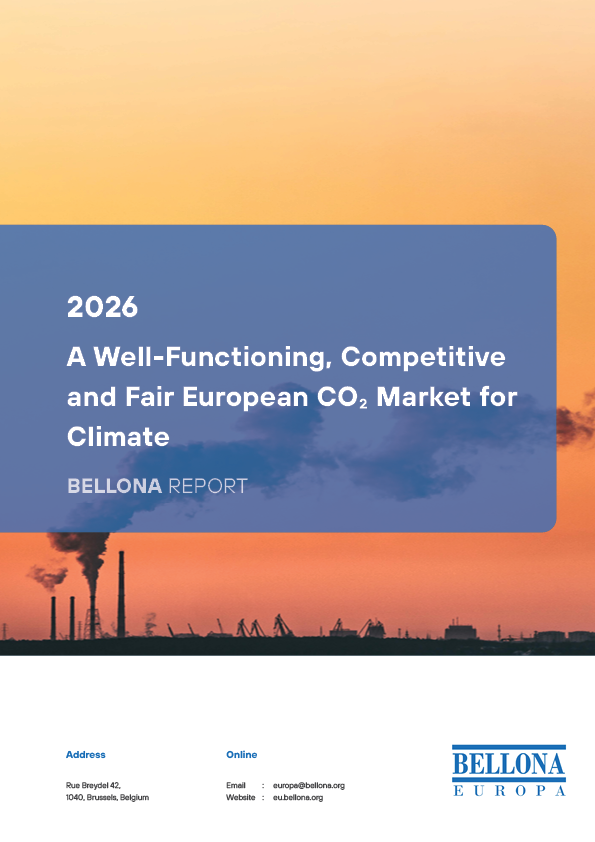
A Well-Functioning, Competitive and Fair European CO₂ Market for Climate
To reach climate neutrality by 2050, society will require CO₂ transport and storage services to be available at scale in a functioning internal Europ...
Publication

Publisher: Bellona Europa
Publication
The latest report of the Intergovernmental Panel on Climate Change (IPCC 5AR, 2014) issued a stark warning: to stand a reasonable chance of avoiding disastrous climate change, we have to remain within a ‘safe’ level of CO2 emissions so that average global temperature rise is limited to 2°C.
Because more than half of the CO2 ‘budget’ that allows us to remain within this threshold has already been used and current rates will exhaust the remainder within 25 years, the IPCC’s scenarios now rely on negative emissions to keep temperature rise below 2°C.
Negative emissions are achieved when excess CO2 is removed from the atmosphere. This is attainable through the combination of Carbon Capture and Storage (CCS) and sustainable biomass used for energy or products, so-called Bio-CCS or BECCS. The message from the IPCC cannot be misunderstood: Bio-CCS is going to be a critical safeguard against disastrous climate change.
Rejecting any role for Bio-CCS will: Drastically increase decarbonisation costs; preclude reaching the 2°C / 450 ppm target this century; likely result in missing our only chance to deal with runaway climate change; alienate potential allies from industrial sectors needed for deep decarbonisation; and increase the political barriers to transformational change.
This brief, summarising the case for action on CCS and Bio-CCS as laid out in the IPCC 5AR, is being launched today, 7 December 2015, at the UN Climate Conference COP 21, where Bellona’s Founder and President Frederic Hauge is speaking among the IPCC’s Vice Chair, Jean-Pascal van Ypersele, and Associate Professor at Radbout University, Heleen de Coninck.
Get our latest news